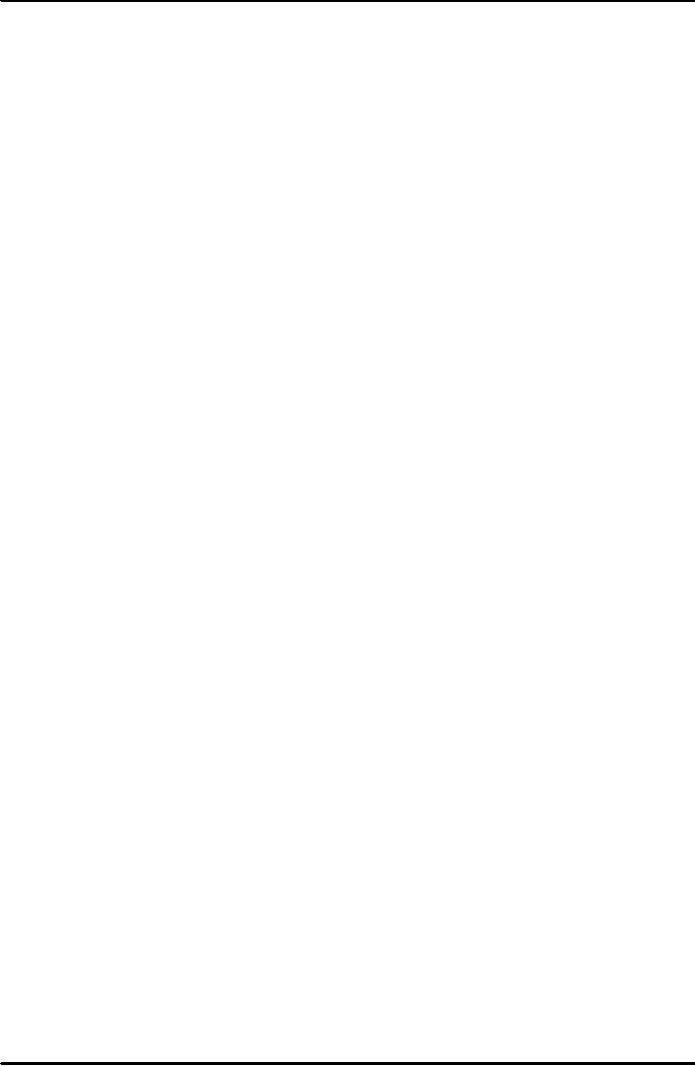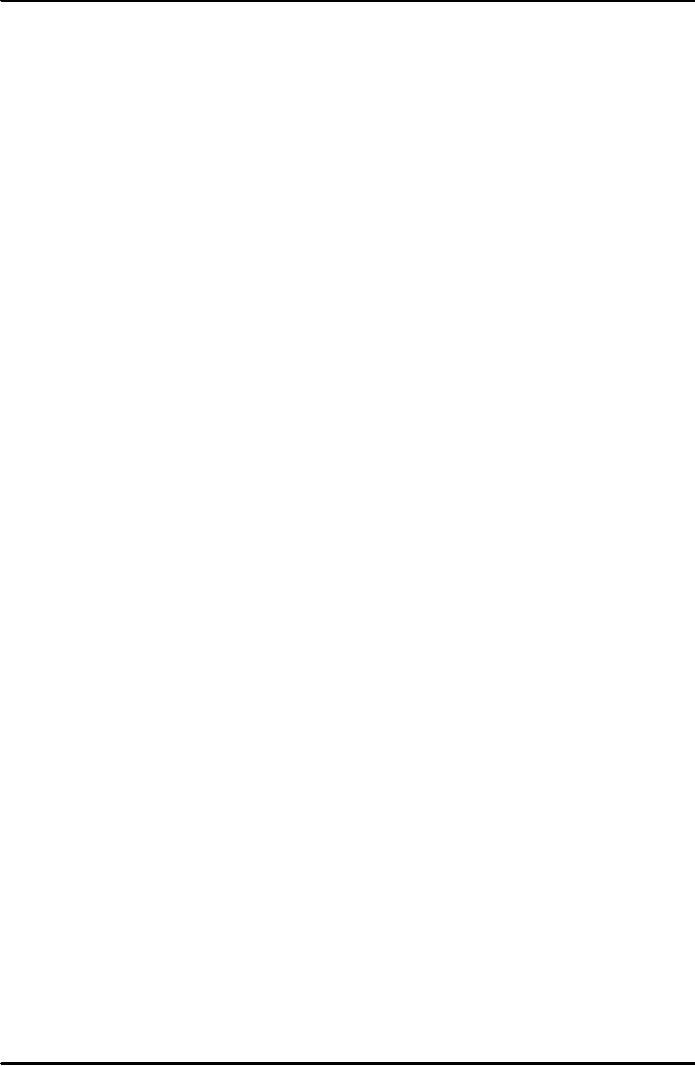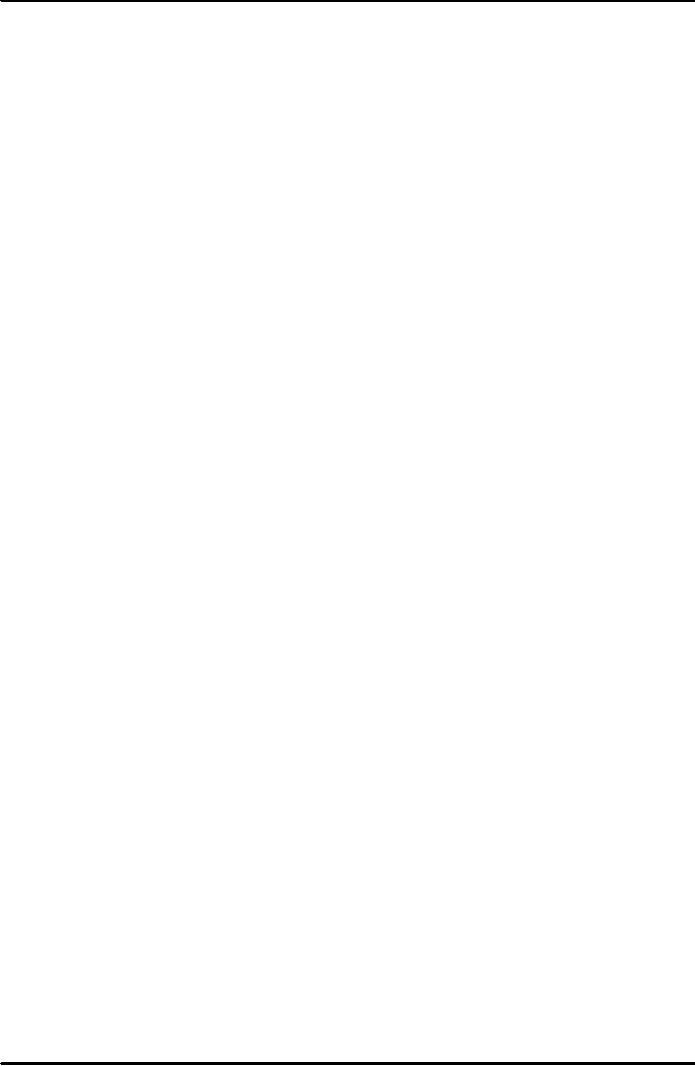 |

VU
Lesson
37
PROCESS
OF PREPARING THE INTERVIEW
Qualifications
for the Job
Suitability
for the specific job is judged on the
basis of
�
Academic
preparation
�
Work
experience
�
Job-related
personality traits
Have
some idea of whether you
have the right qualifications, based on a
review of your resume.
But
during the interview, you'll be
asked to describe your
education and previous
jobs in more
depth so
that
the interviewer can determine
how well your skills
match the requirements. In many
cases, the
interview
will be seeking someone with
the flexibility to apply diverse skills
in several areas.
When
describing your skills, be
honest. If you don't know
how to do something, say so.
Given the
high
cost of hiring unsuitable
employees, more and more
companies are concerned
about background.
Pre-employment
Test
They
to provide objective, quantitative
information about a candidate's skills,
attitudes, and
habits.
job
skills tests, . Job-skills
tests, the most common type,
are designed to access
competency or
specific
abilities needed to perform a job.
Psychological tests usually
take the form of questionnaires.
These
tests
can be used to assess
overall intellectual ability, attitudes
toward work, interests,
managerial potential,
or
personality characteristics including
dependability, commitment, honesty, and
motivation.(6tasks)
Preparing
for a Job Interview
preparation
is mandatory.
think
about the job itself and
prepare.
normal
to feel a little anxious before an
interview. But good preparation
will help you perform
well.
Be
sure to consider any cultural
differences preparing for
interviews,
base
your approach on what you
audience expects. (1) learn
about the organization,(2 think
ahead
about
questions, (3bolster your confidence,
(4polish you interview style, (5plan to
look good, (6 be ready
when
you arrive.
Learn
About the
Organization
When
planning your employment search,
you probably already
researched the companies you
sent
your
resume to. But now
that you've been invited
for an interview, you'll want to
fine-tune your
research
and
brush up on the facts you've
collected.
Today's
companies expect serious
candidates to demonstrate an understanding of the
company's
operations,
its market, and its
strategic and tactical
problems. Learning about the organization
and the job
enables
you to show the interviewer
just how you will
meet the organization's particular needs
(think ahead)
Planning
for a Successful Interview
Think
Ahead about Questions
Planning
ahead for the interview's question will
help you handle them more
confidently and
intelligently.
Moreover, you will want to
prepare intelligent questions of
your own.
1.
What was the toughest
decision you ever had to
make?
2.
Why do you want to work for this
organization?
3.
Why would the organization employ
you?
4.
If the organization hire you, what changes
would you make?
5.
Can we offer you a career
path?
174

VU
6.
What are your greatest
strengths?
7.
What are your greatest
weaknesses?
8.
What didn't you like
about previous job you've
held?
9.
Are there any weaknesses in
your education or
experience?
10.
Where do you want to be five
years form now?
11.
What are your salary
expectations?
12.
What type of position are
you interested in?
13.
Tell something about
yourself?
14.
Do you have any question about the
organization or the job? bolster your
confidence
Bolster
Your Confidence
Planning
question of your own
Deciding
whether you like the work
and org compatible with your
goals
If
you feel shy or self-conscious,
remember that recruiters are
human too.
The
best way to counteract any
apprehension is to remove its
source. You may feel shy or
self-conscious
because
you think you have
some flaw that will
prompt others to reject you.
Bear in mind, however,
that
you're
much more conscious of your
limitations than other people
are.
Polish
your interview Style
Staging
mock interview with a friend is a
good way to hone your
style.
Nonverbal
behaviour has a significant effect on the interview's
opinion of you.
Confidence
helps you walk into an
interview, but once you're
there, you want to give the
interviewer
an impression of poise, good
manners, and good
judgment.
Plan
to Look Good
To
look like a winner
�
Dress
conservatively
�
Be
well groomed
�
Smile
when appropriate
Physical
appearance is important because
clothing and grooming reveal
something about a
candidate's
personality and professionalism. When it
comes to clothing, the best
policy is to dress
conservatively.
Wear the best-quality businesslike cloth
you can, preferably in a dark, solid
color.
Interviewing
for Success
Be
prepared for the interview
by
�
Taking
proof of your
accomplishments
�
Arriving
on time
�
Waiting
graciously
How
you handle a particular interview depends
on where you stand in the
interview process. If
you're
being interviewed for the first
time,
Present
a memorable headline during
screening
Cover
all your strength during
selecting
Emphasize
your personality during final
stage
During
interview
.
Psychologists say that 50
percent of an interview's decision is
made within the first 30 to
60
seconds,
and another 25 percent is made
within 15 minutes. If you
get off to a bad start, it's
extremely
difficult
to turn the interview around.
The
Questions and answer
stage
175

VU
Questions
and answers will consume the
greatest part of the interview. The
interviewer will ask
you
about
your qualifications and discuss
some of the points mentioned in your
resume. You'll also be
asking
questions
of your own. Dealing with
question
In
Warm-up
Dealing
with Questions
Tailor
your answers to emphasize
your strengths
Listening
to the Interviewer
Paying
attention to both verbal and
nonverbal messages can help
you turn the question and
answer
stage
to your advantage
To
Close
Like
the opening, the end of the interview is
more important than its
duration would indicate.
In
the
last few minutes, you need
to evaluate how well you've
done. You also need to
correct any
misconceptions
the interviewer might
have.
Concluding
Gracefully
Conclude
the interview with courtesy
and enthusiasms:
You
can generally tell when the
interviewer is trying to conclude the
session. He or she may
ask
whether
you have any more
questions, sum up the discussion,
change position, or indicate with a
gesture
that
the interview is over.
176
Table of Contents:
- COMMUNICATION:Definition of Communication, Communication & Global Market
- FLOW OF COMMUNICATION:Internal Communication, External Communication
- THEORIES OF COMMUNICATION:Electronic Theory, Rhetorical Theory
- THE PROCESS OF COMMUNICATION & MISCOMMUNICATION:Message
- BARRIERS IN EFFECTIVE COMMUNICATION /COMMUNICATION FALLOFF
- NON- VERBAL COMMUNICATION:Analysing Nonverbal Communication
- NON- VERBAL COMMUNICATION:Environmental Factors
- TRAITS OF GOOD COMMUNICATORS:Careful Creation of the Message
- PRINCIPLES OF BUSINESS COMMUNICATION:Clarity
- CORRECTNESS:Conciseness, Conciseness Checklist, Correct words
- CONSIDERATION:Completeness
- INTERCULTURAL COMMUNICATION
- INTERCULTURAL COMMUNICATION:Education, Law and Regulations, Economics
- INDIVIDUAL CULTURAL VARIABLES:Acceptable Dress, Manners
- PROCESS OF PREPARING EFFECTIVE BUSINESS MESSAGES
- Composing the Messages:THE APPEARANCE AND DESIGN OF BUSINESS MESSAGES
- THE APPEARANCE AND DESIGN OF BUSINESS MESSAGES:Punctuation Styles
- COMMUNICATING THROUGH TECHNOLOGY:Email Etiquette, Electronic Media
- BASIC ORGANIZATIONAL PLANS:Writing Goodwill Letters
- LETTER WRITING:Direct Requests, Inquiries and General Requests
- LETTER WRITING:Replies to Inquiries, Model Letters
- LETTER WRITING:Placing Orders, Give the Information in a Clear Format
- LETTER WRITING:Claim and Adjustment Requests, Warm, Courteous Close
- LETTER WRITING:When The Buyer Is At Fault, Writing Credit Letters
- LETTER WRITING:Collection Letters, Collection Letter Series
- LETTER WRITING:Sales Letters, Know your Buyer, Prepare a List of Buyers
- MEMORANDUM & CIRCULAR:Purpose of Memo, Tone of Memorandums
- MINUTES OF THE MEETING:Committee Members’ Roles, Producing the Minutes
- BUSINESS REPORTS:A Model Report, Definition, Purpose of report
- BUSINESS REPORTS:Main Features of the Report, INTRODUCTION
- BUSINESS REPORTS:Prefatory Parts, Place of Title Page Items
- MARKET REPORTS:Classification of Markets, Wholesale Market
- JOB SEARCH AND EMPLOYMENT:Planning Your Career
- RESUME WRITING:The Chronological Resume, The Combination Resume
- RESUME & APPLICATION LETTER:Personal Details, Two Types of Job Letters
- JOB INQUIRY LETTER AND INTERVIEW:Understanding the Interview Process
- PROCESS OF PREPARING THE INTERVIEW:Planning for a Successful Interview
- ORAL PRESENTATION:Planning Oral Presentation, To Motivate
- ORAL PRESENTATION:Overcoming anxiety, Body Language
- LANGUAGE PRACTICE AND NEGOTIATION SKILLS:Psychological barriers
- NEGOTIATION AND LISTENING:Gather information that helps you
- THESIS WRITING AND PRESENTATION:Write down your ideas
- THESIS WRITING AND PRESENTATION:Sections of a Thesis (Format)
- RESEARCH METHODOLOGY:Studies Primarily Qualitative in Nature
- RESEARCH METHODOLOGY:Basic Rules, Basic Form, Basic Format for Books